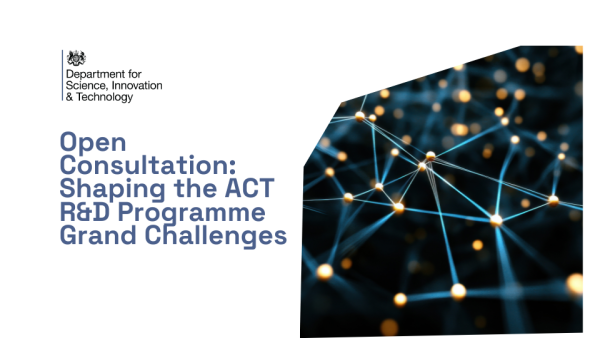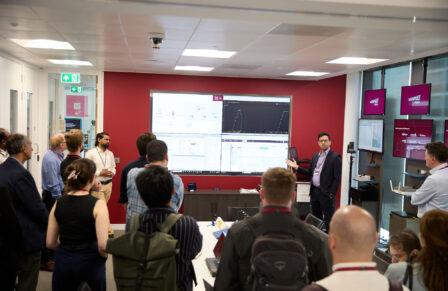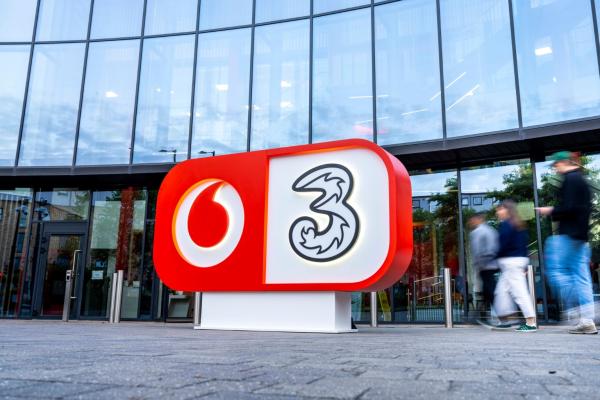
As the Future Network Programme concludes, UKTIN is working with DSIT to reflect on the government-funded projects, outlining the key outcomes and the lessons learned to help improve future telecoms initiatives.
The UK’s increasingly complex and connected telecom systems pose numerous security challenges, including data breaches, DDoS attacks, and insider threats.
These risks can have serious consequences, such as financial loss and reputational damage. The UK lost a staggering £44bn in revenue due to cyberattacks during 2020-2025 Howden Insurance has found. DSIT reported last year that half of businesses in the UK and around a third of charities had experienced cyber security breaches or attacks in the previous 12 months. The credit ratings agency places the telecom sector in the ‘very high’ category for cyber risk, up from ‘high’ in 2022: increased digitalisation and weak risk mitigation are among the contributory factors.
DSIT is committed to protecting our shared virtualised resources – and its funded projects are a part of this.
PerceptRAN
PerceptRAN has identified and addressed the primary challenges associated with Open RAN platform automation and security, developing an AI-driven, highly secure carrier-grade Open RAN platform blueprint. The team’s programmable platform is imbued with dynamic service models and a real-time controller, facilitating adaptability in response to varying network demands and enabling instant management of network and platform resources. Crucially, the platform can detect external interference.
The project plans to develop the integration further to create an inclusive and versatile supply chain that is environmentally friendly. They aim to enhance the interoperability of Apps across RAN Intelligent Controller solutions and ease access to large-scale Open RAN data to drive intelligent RAN operations. PerceptRAN has taken decisive steps towards a future where Open RAN systems deliver unparalleled services to all stakeholders, embodying the true spirit of open networks.
Ankit Verma, Software Engineer at Microsoft, said: “As part of the project, we formulated a new use case centred on O-RAN security. We conducted a security analysis of the O-RAN fronthaul and identified multiple vulnerabilities, primarily attributed to the absence of encryption. The lack of encryption arises from the considerable computational demands required to implement it at the necessary speeds. We devised several hypothetical attacks that could exploit these vulnerabilities. To address this, we developed a Janus-based solution capable of detecting such attacks, which would otherwise remain undetected. Here is a video demonstrating.”
UK Telecoms Lab (UKTL)
UKTL is a direct outcome of the 2019 Telecoms Supply Chain Review. The first of its kind in the country, the lab acts as a secure research facility bringing together telecom operators, suppliers and academics to research and test innovative new ways of boosting the security of the UK’s mobile networks.
The facility enables new businesses to enter the UK telecoms market and protects telecoms equipment and software against cyber attacks. Operated by NPL on behalf of DSIT, the facility is available to network operators, network technology vendors, academics, researchers, businesses and end users.
The centre aims to identify national security risks. Experts from NPL can provide testing and advice to vendors, suppliers, and users to enable them to improve their systems before deployment and identify network vulnerabilities.
Bridgette Bigmore, CTO of UKTL said “UKTL is recognised as a leading centre of excellence in telecoms security, delivering world-class test and evaluation capabilities to protect the UK’s telecoms critical national infrastructure promote diversification of supply, and ensure secure, resilient communications networks. It is a neutral space to collaborate with industry, share best practices and test on near-representative networks. The testing environment we provide will help to promote secure architecture and resolve security, interoperability and compatibility issues, keeping the UK safer and boosting innovation and the UK’s economy. We are proud of our role in developing vital cyber skills in the region and the UK. UKTL works in collaboration with industry, government and academia to deliver cutting-edge testing, research and insights.”
Dorset Open Network Ecosystem (DONE)
DONE builds on the innovative work already undertaken by Dorset Council in collaboration with other consortium partners, including the multi-award winning 5G RuralDorset and Wessex Digital Infrastructure Accelerator (WDIA) projects.
The project has further defined the blueprint for rural connectivity by advancing the development of open-source Radio Access Networks (RANs) and examining technology alternatives to standard network equipment. This will help to make the rollout of the UK’s telecommunications infrastructure in rural and hard-to-reach areas cheaper, faster, more environmentally friendly – and most importantly, secure.
Dave Happy, Chairman of the UK Telco Data Task Force, said: “It is fair to say that we were innovative with the 5G RuralDorest project, winning 11 awards along the way. This additional round of funding for the DONE project has enabled us to build on that success, feed it through and swap knowledge and experience with other programmes. We have also attracted new partners including a world-famous chip company, and created more jobs.
I’ve also mentored a student to help her gain sector experience via the programme and become, we hope, more employable as a result. Furthermore, other people are now working in a spin-out company which was a direct result of the programme. How much better does it get?”









